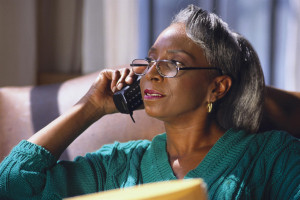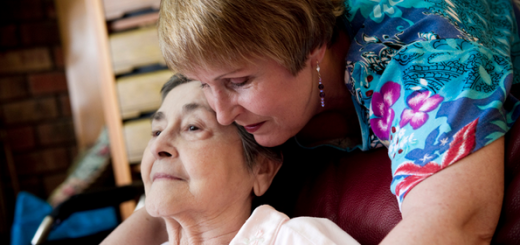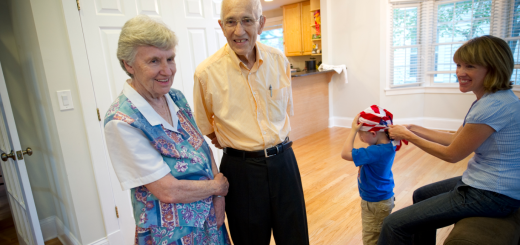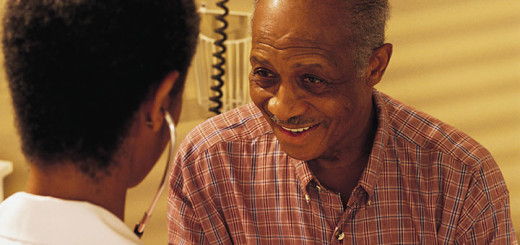A few tips for long distance caregivers
 We live in a mobile society. It’s no longer the norm for families to live in the same town or state. Our families can be spread across the globe. That, in conjunction with our recently released 2012 Alzheimer’s Facts and Figures report that states 800,000 individuals with Alzheimer’s live alone, could be the reason that our Helpline (800.272.3900) is getting more calls from “˜long-distance caregivers.’
We live in a mobile society. It’s no longer the norm for families to live in the same town or state. Our families can be spread across the globe. That, in conjunction with our recently released 2012 Alzheimer’s Facts and Figures report that states 800,000 individuals with Alzheimer’s live alone, could be the reason that our Helpline (800.272.3900) is getting more calls from “˜long-distance caregivers.’
A long-distance caregiver is someone who spends significant amount of time or money to make a trip to their loved one or uses vacation time to regularly check-in with their loved one. A long-distance caregiver may also rely on friends and neighbors local to their loved one to find out what’s going on.
All caregiving has its rewards and challenges. Living far away from your loved one can complicate caregiving but it is possible to successfully manage caregiving from a distance. Here are some strategies:
Whenever possible, plan ahead. Organize and have copies of legal and financial papers. Know insurance plans, bank account numbers and schedules of regular expenses, including login names and passwords for anything paid for online or electronically.
Educate yourself on your loved one’s disease or medical condition and know their abilities. Communicate with your loved one’s doctor, keeping in mind you may need a Power of Attorney for Healthcare or HIPAA release form to be given medical information. Know your loved one’s medications, including doses and schedules of prescription and over-the-counter medications.
Establish a local support network. Have the contact information for friends, neighbors, religious organizations or clubs and associations your loved one belongs to. Know the telephone numbers for the local Area Agency on Aging, Alzheimer’s Association chapter, senior center, and long-term care ombudsman. If possible, hire a Geriatric Care Manager to coordinate care locally.
Have a family or care team meeting – regularly, when there’s a change in condition, or in an emergency situation. One benefit of all the current telecommunication technology is that care teams can meet virtually. Technology also lets caregivers manage group efforts with online calendars and coordination services such as Lotsa Helping Hands.
Check with your employer about benefits they may offer – Employee Assistance Programs (EAP), Family and Medical Leave Act (FMLA), flexible spending accounts or flex-time.
Remember to take care of yourself. Develop effective stress management techniques. Exercise, eat properly, do something nice for yourself. Attend a caregiver support group; there are in-person, telephone, and online groups that will provide emotional support, education, and caregiving strategies.
This is by no means an exhaustive list but having the information for at least one, two, or three of these categories, will go a long way in helping you cope with long-distance caregiving.
Helpful information related to this story
Caregiver stress management tips and more


















Long-distance caregiving is very common. Many of our clients’ families live out-of-state, so our caregivers keep in close contact with the family member who is overseeing their loved one’s care. The strategies you suggested here are really important when formulating a care plan. Thanks for sharing this information!
Cathy Murphy, Home Instead Senior Care, San Francisco
My Aunt went through a terribly rough time caring after her mother before she died from cancer. She had a very hard time accepting what was happening to her mother and as her mother got worse, she became harder to take care of. She wasn’t trained to be that type of caregiver. Of course she had children and cared after a family, but what she experienced with her mother was completely different. It was heart breaking to watch, and my aunt slipped in to a very deep depression. Even after her mother passed away, it was hard for her to even get out of bed. She finally went to talk to someone and it was recommended to her to read a book called “Waking Up: Climbing Through the Darkness†by Terry Wise http://terrywise.com.
It helped her get through her tough time, and now she recommends it to anyone who might be faced with care giving, PTSD, Depression or any other personal issues along those lines. These things can take a real toll on someone and for her, she talks about how it was nice to read a book that actually helps!
Care giving is a very difficult task, there is no doubt about it. I work for a home care agency and often times we’re picked up by folks who’ve tried their best to give it a shot but find it very taxing on an emotional level and understandably so.